15 Reasons Ozempic May Not Be Working for You

Ozempic is highly effective for weight loss—but what if it's not working for you? "While Ozempic can enhance weight-loss results, it's not a magic bullet. The way the body responds to Ozempic varies among individuals," says the Mayo Clinic. "Factors such as genetics, metabolic rate, and overall health can influence the impact of the medication on weight-loss progress." Here are 15 reasons you might not be losing weight on Ozempic.
Dosage Issues
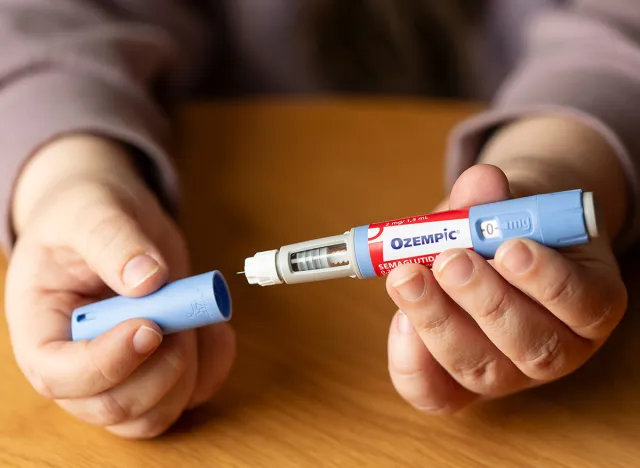
The correct dosage of Ozempic varies from person to person. "In clinical trials, Ozempic has shown promising results at standard doses," says the Mayo Clinic. "However, in some cases, healthcare providers may adjust the dosage based on individual needs. Discussing the dosage with your healthcare provider is crucial to ensuring that you are on the right track for weight-loss success."
You're Not Exercising

Ozempic is not an excuse to give up on your fitness regimen. "There are added benefits for people with diabetes," says Harvard Health. "Exercise lowers blood glucose levels and boosts your body's sensitivity to insulin, countering insulin resistance."
It's Too Early
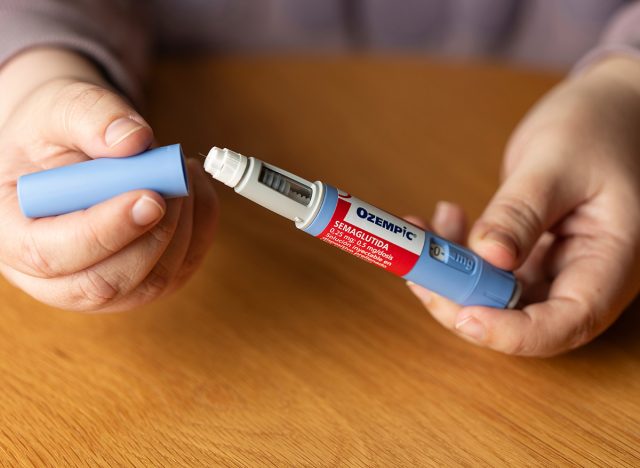
Ozempic may take a while to kick in, depending on dosage. Some people start on a low dose and work their way up. Be patient!
RELATED: 20 Incredible Ozempic Success Stories of All Time
Unhealthy Lifestyle
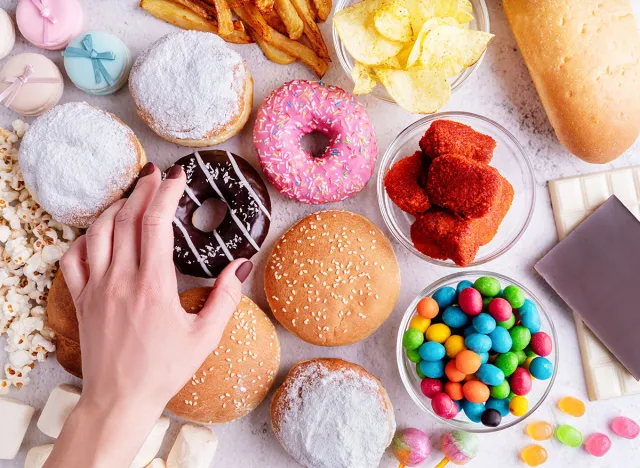
Ozempic works side-by-side with healthy lifestyle changes. "Are you eating a balanced diet that includes a variety of fruits, vegetables, whole grains, and lean proteins? Or are you relying heavily on processed foods, sugary snacks, and fast food?" says the Mayo Clinic. "Evaluating your diet can help you identify areas for improvement and make necessary changes to support your overall well-being."
Not Taking It Every Day
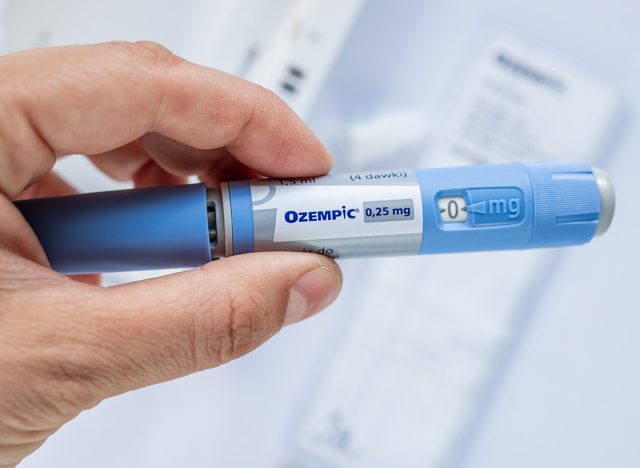
Ozempic is designed to be taken every day, so follow the instructions your doctor provided. "If you miss a dose of this medicine, take it as soon as possible. However, if it is almost time for your next dose, skip the missed dose and go back to your regular dosing schedule," says the Mayo Clinic. "Do not double doses."
Food Noise

Many people who take Ozempic say that the "food noise" is turned off. If that's not the case, Ozempic may not be right for you. "Some finally feel relieved of that pressure of thinking about a food or pressure of trying not to think about the food when the food is in their mind," Anastassia Amaro, MD, tells Penn Medicine. "And others, actually, may not like it as much because they may be losing their social life over it. They are not interested in going out. They're not interested in hosting parties."
Medical Conditions

Underlying medical conditions could prevent Ozempic from working properly. Always get a full check-up with a medical professional to rule out any health problems. Talk to your doctor if there's any concern at all.
RELATED: 20 Things You Need to Know About Ozempic and Weight Loss
Try a Different Drug

Ozempic is not meant for weight loss but for treating type 2 diabetes. It might be worth looking into a different drug specifically designed for weight loss, such as Wegovy. Ask your doctor about alternatives if Ozempic is not working.
Incorrect Injecting
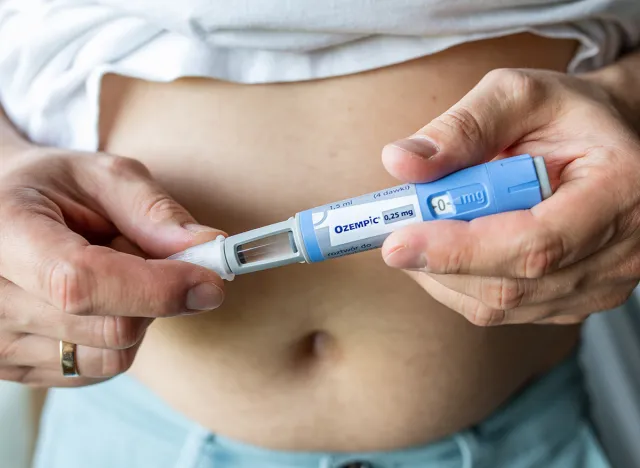
It's very important to inject Ozempic correctly. "To ensure proper injection technique, injecting the medication below the skin in the abdomen, thigh, or upper arm is essential," according to BrandonRichlandMD.com. When doing this, paying careful attention to the injection site is important to avoid any complications."
Rotate Injection Site
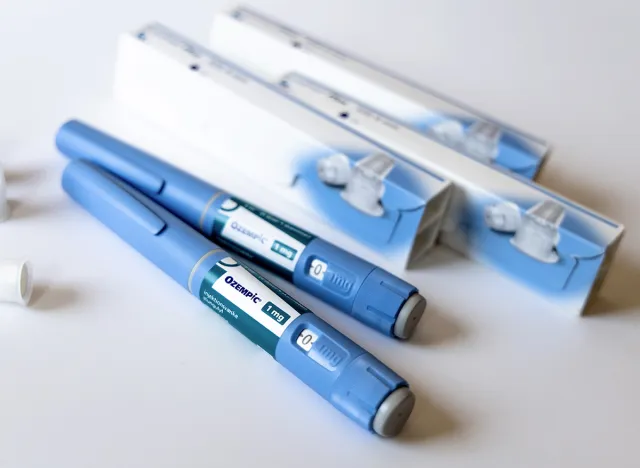
Don't use the same injection site for each shot. "Rotating injection sites can increase the effectiveness of semaglutide in controlling blood sugar levels," according to BrandonRichlandMD.com. "Injecting the medication in different areas of your body reduces pressure on each location. It improves the chances of a steady amount of the medicine being absorbed into your system with each dose."
Drinking Alcohol
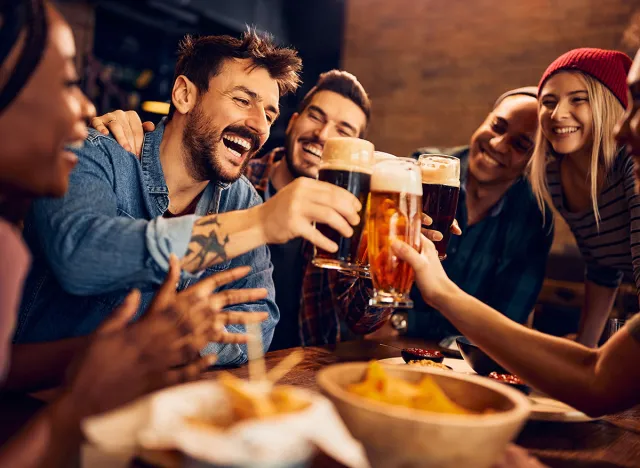
Drinking alcohol while taking Ozempic can be dangerous for people with type 2 diabetes. While many people lose the desire to drink alcohol, those who do are risking low blood sugar (hypoglycemia). Alcohol can also make gastrointestinal side effects worse.
RELATED: 20 Possible Ozempic Side Effects
Too Much Stress

Stress can negatively impact your metabolism. "Things like exercise, meditation, mindfulness exercises, relaxation — those are ways that we can work toward good stress management, as well as good weight management," Leslie Heinberg, PhD, tells the Cleveland Clinic.
Unrealistic Expectations
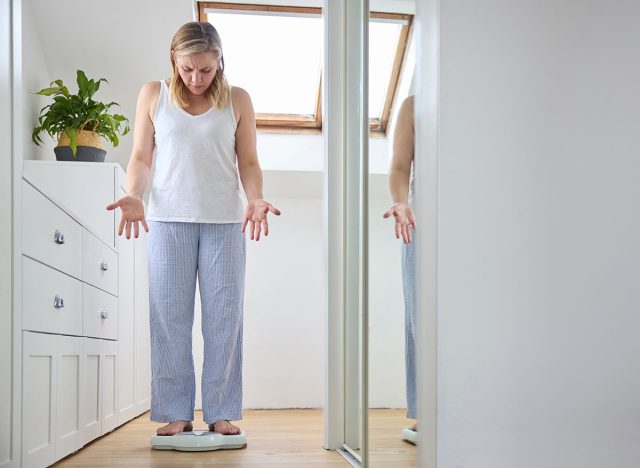
Don't compare your progress on Ozempic to other people—everybody reacts to drugs differently. Factors such as starting weight and lifestyle can make a difference. If you feel you're doing everything correctly and Ozempic is still not effective, talk to your doctor.
Non-Responders

Some people simply don't respond to the drug for a variety of possible reasons. "Typically, the people that are non-responders tend to be sicker," says Gitanjali Srivastava, internist and director of the obesity medicine program at Vanderbilt University Medical Center. "They tend to have more complicated metabolic derangements. They have a lot of complications [like] psychosocial issues that may be going on in their life."
RELATED: 20 Things to Avoid While on Ozempic
Goal Weight Reached

The more weight you have to lose, the more you will lose at the start. Depending on your starting weight, expect weight loss to slow down or plateau altogether as you reach your goal weight. Talk to your doctor about what a healthy weight is for you.
💪🔥Body Booster: When in doubt, talk to your doctor about progress on Ozempic.




